Pre-Winter Health & Well Being
Winter’s on its way, and with it, the dreaded ills and chills that have us curling up in bed hoping the world will go away. That’s no way to spend Winter, and there are plenty of things you can do to minimise the risk of picking up the dreaded lurgy. From watching your hygiene and making sure you wash your hands regularly, to starting to build up your immunity before Winter really hits, there are plenty of things you can start doing now, to decrease the risk of catching and spreading the ills this winter. We spoke to Danielle Steedman (pictured), Naturopath & Blackmores Wellbeing Coach, to find out her tips and tricks to staying healthy in the lead up to winter and throughout. Whilst there is no guarantee you won’t fall ill, these will keep you in good stead.

With winter just around the corner, what are some of the things we should be doing to get and keep our bodies healthy?
There are a variety of ways to help care for your health and support your immune system in the lead up to the colder months.
Always eat well – consuming a wholesome, balanced diet will help build your body’s resistance – and there are some foods, which are packed with important nutrients that are great for helping getting you through this period. Try and up your intake of immunity-building foods with betacarotene (like broccoli, carrots, squash and sweet potato); zinc (think pepitas, eggs and lean red meat), and vitamin C (try kiwi fruit, berries, oranges and dark leafy vege).
Good quality sleep is also really important; this is the time your body rests and repairs. Aim to go to bed and wake up roughly the same time most nights, and make sure your room is comfortable for sleeping – the right temperature and nice and dark.
Keep hydrated! It is important to drink a lot of water as adequate hydration flushes out bodily toxins and keeps our internal body cells functioning effectively – don’t underestimate the noble H20.
Good skin care practices are also just as important in winter as they are in summer. During winter, the skin’s protective acid mantle can be depleted due to cold, drying winds and fierce heating devices. Ensuring you’re having enough pure water will help keep you hydrated from the inside.
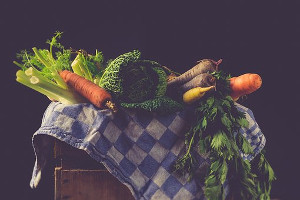

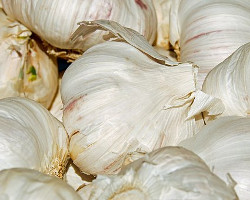

What foods should we be eating now, to try to build up our strength and immunity?
Vitamin C is a classic immune-friendly ingredient, which you can find in kiwi fruit, dark green leafy vegetables, blueberries and of course the humble orange.
Garlic is another favourite and not only will it give your meal a great flavour, it also contains unique immune boosting properties. It has a long history of use as an infection fighter and is a powerful weapon against bacteria and viruses so continue adding to all your favourite winter dishes.
Perhaps one of the less well known ingredients for immunity is sweet potatoes! It’s the betacarotene content which gives them their warm orange colour, but it is also a precursor to vitamin A and will be converted in the body as needed. Betacarotene and vitamin A may help to improve immune system function.
Nuts – one of our best sources of vitamin E around. Vitamin E is a potent antioxidant nutrient and may help to support regular immune function and resistance to bacterial infection. Almonds, walnuts, Brazil nut and pecans are particularly great. Go for a handful each day and choose raw, unsalted nuts over roasted (up to 55% of the Vitamin E can be lost in the roasting process).
Oats – you can almost taste that delightful winter porridge! Oats contain vitamins E and B, a number of minerals as well as beta-glucans.
Are there any supplements we should be taking if we can’t get enough vitamins and minerals from our food?
Winter is a time that definitely tests our bodies, but there are number of supplements we can take to support us during the colder months, if we aren’t getting enough vitamins from our diet.
Vitamin E: Chilly hands and feet are often common and the results of reduced peripheral blood circulation, so taking either vitamin E or ginkgo can help to support and keep your extremities a little warmer.
Vitamin D: Darker, shorter days are also synonymous with winter and as such, most of us don’t seem to get enough sunshine. Vitamin D is an important nutrient for healthy immune function and low levels of vitamin D may increase the risk of common cold and upper respiratory tract infections – the thing is, we need sun exposure to manufacture it. So if you can’t get outside and catch the sun’s rays, a vitamin D supplement can be beneficial.
Vitamin C: A well-known component of the immune system, vitamin C also plays an antioxidant role. Vitamin C supplementation can help to support the body’s immune system whilst helping to protect it from free radical damage.
Probiotics: Good gut bacteria are important for a healthy and strong immune system. If there is an imbalance in our gut bacteria, our immune system may be compromised. Probiotics can help maintain normal gut bacteria and an optimum immune system.


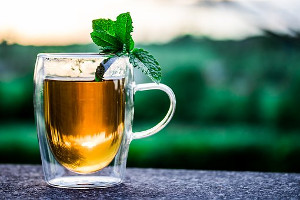
If we’ve done our best and still start to feel the dreaded cold coming on, what should we do to try to shorten the duration of the illness?
Good nutrition, adequate sleep and exercise are the best ways to help shorten the duration of the common cold or flu. These all help ensure our immune system is working at its best, which is our best mechanism to fighting off an illness. Always look to include plenty of fresh fruit and vegetables in the daily diet, as they are a good source of Vitamin C. Try to also avoid dairy as that can increase the body’s tendency to form mucus and instead increase your intake of warm liquids (such as herbal teas) and water.
It’s hard to be motivated to stay fit when it’s cold outside. Do you have any exercises you can recommend to stay fit as the temperature heads south?
Exercise is a great way to help stay well in the winter. Be really proactive with your fitness routine – you might have to change things up and counteract the less motivating cold weather with time in the gym (instead of outdoors), laps in the pool (maybe indoor if you’re chilly!), yoga or take a dance class – even a relaxing walk on your lunch break!
Make a date to exercise with a friend so that you are committed, or join up for a ‘winter challenge’ of some sort so you have a goal to keep you motivated.
To help reduce your stress and maintain your immunity during the colder months, make sure to also take time out and relax by doing activities you enjoy. Regular exercise, meditation and yoga are all great stress reducers.
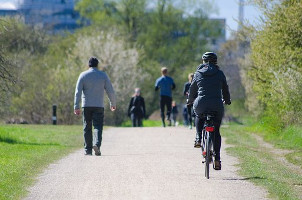
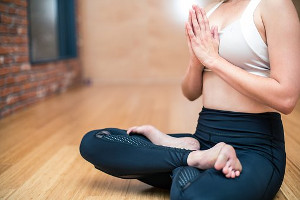

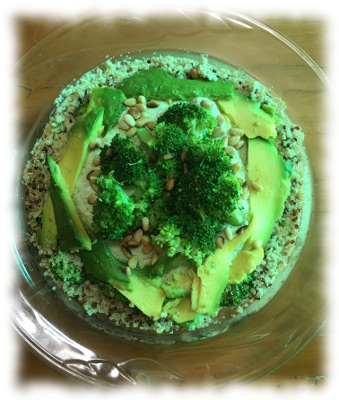
What is your go-to recipe for a healthy autumn meal or snack?
Quinoa Salad with Broccoli-Pine nut pesto
Broccoli is in season this autumn, and is a great nutritious vegetable to enjoy. Try to purchase organic broccoli, as unfortunately conventionally grown broccoli is farmed intensively with agricultural chemicals. Broccoli is rich in vitamins and minerals including vitamin C, K, A folate and potassium, as well as phytonutrients quercetin, carotenoids (lutein, zeaxanthin, beta carotene) and the wonderfully smelly sulforaphane, a powerful antioxidant. Here is a lovely recipe to enjoy. Quinoa can be substituted for brown rice or the pasta of your choice according to taste.
Ingredients
Fine sea salt
5 cups broccoli florets and thinly sliced stems (preferably organic)
2/3 cup pine nuts, toasted
Grated zest and juice of 1 lemon
½ cup crème frache
1 ½ cups quinoa of choice (tri colour is a nice option)
2 cloves organic garlic, peeled
1/3 cup freshly grated grana padano cheese
¼ cup organic extra virgin cold pressed olive oil
1 ripe avocado, pitted and sliced
Directions
- Bring a large pot of water to a boil. Add quinoa, and cook according to package instructions. Drain, rinse with cold water, and drain well again.
- Cook the broccoli. Bring ¾ cup water to a boil in a large pot. Add a big pinch of salt and stir in the broccoli. Cover and cook for 1 minute until bright green but still slightly crunchy. Drain the broccoli in a strainer and run under cold water to stop the cooking. Drain well and set aside.
- Make the pesto: Combine 2 cups of the cooked broccoli, garlic, ¾ of the pine nuts, grana Padano, ¼ teaspoon salt, 2 tablespoons of the lemon juice in a food processor. Drizzle in olive oil and crème fraiche and pulse until smooth.
- Toss quinoa and remaining cooked florets with about 2/3s of the broccoli pesto and the lemon zest. Thin with a bit of warm water to desired consistency. Adjust seasoning by adding more salt, lemon juice, or pesto as desired. Fold in avocado. Serve topped with remaining pine nuts.
Enjoy in good company!
Note from Beauty Over 40 – This salad made enough for about 8 people, so if you are feeding fewer, please adjust accordingly. Padano cheese is very similar to Parmesan/Reggiano.
Thank you Danielle – an amazing article to help us stay healthy and build our immunity ahead of Winter.
What are your tips to stay healthy over Winter? Let us know in the comments below. My favourite tip – 10 hours of sleep as soon as I feel the first niggle of cold or flu, and a large glass of V8 vegetable juice. I feel so much better the next morning.


